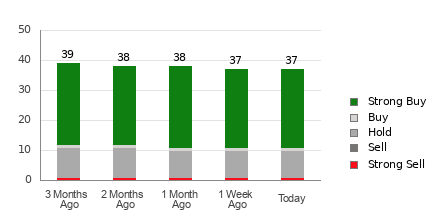Unlocking Social Security: Is Waiting Until Age 70 Right for You?
To achieve the highest Social Security benefit possible, waiting until age 70 is often recommended by personal finance experts. Research indicates that this age allows the average retiree to maximize their lifetime benefits from the program.
However, postponing benefits until age 70 has its drawbacks. It isn’t the best choice for everyone. Here’s a closer look at the implications of claiming Social Security at age 70.

Image source: Getty Images.
Assessing the Risk of Delaying Benefits
Studies suggest that delaying Social Security until age 70 can lead to greater lifetime benefits. Although retirees miss out on payments in their sixties, the increased payouts in their seventies can eventually surpass early claims. However, those who wait must live into their 80s to truly benefit from this approach.
Individual circumstances vary greatly, and it’s crucial to consider personal health and family history. If there’s reason to believe that life expectancy may be shorter, claiming benefits earlier can be a smarter decision.
Impact on Wealth for Your Heirs
While waiting until age 70 can maximize lifetime Social Security income, it might not leave much for your heirs. Unlike personal investments, Social Security benefits do not transfer to your next of kin.
If you delay claiming Social Security, you may need to withdraw more from retirement accounts during your sixties. This approach increases the reliance on the performance of those accounts, raising the risk of depleting them before greater returns are realized.
Consequently, a bad sequence of returns in your sixties could severely undermine your retirement savings. Although Social Security will eventually provide assistance, there may be little left for your loved ones. Effective asset allocation can mitigate this risk, but it may reduce expected returns as a trade-off.
Considerations for Couples
For couples, the strategy for claiming Social Security can often change. The lower-earning partner might actually increase overall benefits by claiming before age 70. This is due to spousal benefits that allow them to receive up to half of the higher-earning spouse’s benefit at full retirement age, typically between ages 66 and 67.
Additionally, survivor benefits enable a widow or widower to collect the amount their deceased spouse was receiving. Couples should take their combined life expectancies into account when making these decisions.
This strategy often favors the higher-earning spouse waiting until age 70 while allowing the lower-earning partner to claim benefits much earlier, even at age 62. Because the lower earner’s Social Security income has less impact on the couple’s total lifetime benefits, this could be a more effective way to manage their retirement income.
To navigate the complexities of Social Security claiming strategies for couples, consulting with a financial professional is advisable. They can help you understand which options best fit your financial goals, whether they involve maximizing Social Security, leaving a legacy for your heirs, or maintaining consistent income throughout retirement.
Discover the Overlooked $22,924 Social Security Bonus
Many Americans find themselves lagging behind in retirement savings. However, some lesser-known “Social Security secrets” can enhance your income. For instance, one simple strategy might add as much as $22,924 to your annual retirement income. By learning how to maximize your Social Security benefits, you could retire with confidence and peace of mind. Click here to explore these strategies further.
View the “Social Security secrets” »
The Motley Fool has a disclosure policy.
The views and opinions expressed herein are the views and opinions of the author and do not necessarily reflect those of Nasdaq, Inc.









